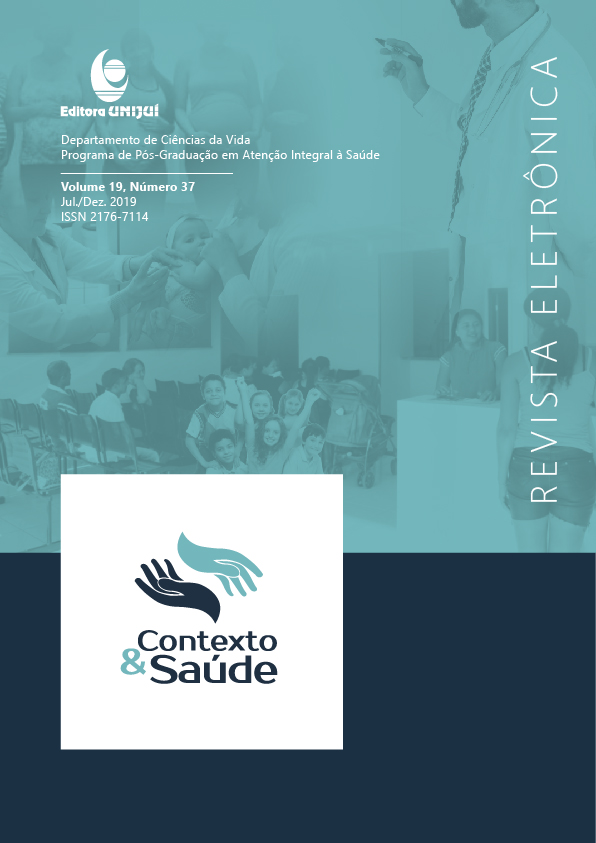EDUCAÇÃO E TRABALHO INTERPROFISSIONAL NA ATENÇÃO AO TRANSTORNO DO ESPECTRO DO AUTISMO: UMA NECESSIDADE PARA A INTEGRALIDADE DO CUIDADO NO SUS
DOI:
https://doi.org/10.21527/2176-7114.2019.37.59-68Resumen
Objective: This is an account of experience in health and education, whose objective is to document and reflect the relationship between education and interprofessional work in the attention to Autism Spectrum Disorder (ASD). Method: Located in the city of Macaíba, in Rio Grande do Norte, the TEA Attention Service (SATEA) is inserted in the Unified Health System (SUS) as an outpatient reference for maternal and child health care and for auditory, motor and rehabilitation and intellectual. The implementation of SATEA came with the prerogative to act in the training, development and permanent education of health professionals, developing integrated teaching, research and extension actions focused on conceptions of social responsibility, equity, quality and efficiency, to generate scientific evidence, develop strategies and promote partnerships capable of strengthening and assisting SUS. Outcome: SATEA is becoming a local reference service for the care of children with ASD. Much of this recognition comes from a work based on interprofessionality and the construction of collaborative practices with the local Teams of Family Health Strategy. This experience has favored the access of the local professionals to the permanent education, recognizing them as fundamental agents for the learning in service and for the legitimation of the formative role of SUS. Conclusion: It is understood that the experiences presented in this study can serve as a basis for other specialized services in maternal and child health and rehabilitation; in addition to offering SUS users the documentation of the implementation process and implementation of a specialized service in TEA.
Descargas
Publicado
Cómo citar
Número
Sección
Licencia
Ao publicar na Revista Contexto & Saúde, os autores concordam com os seguintes termos:
Os trabalhos seguem a licença Creative Commons Atribuição 4.0 Internacional (CC BY 4.0), que permite:
Compartilhar — copiar e redistribuir o material em qualquer meio ou formato;
Adaptar — remixar, transformar e criar a partir do material para qualquer fim, inclusive comercial.
Essas permissões são irrevogáveis, desde que respeitados os seguintes termos:
Atribuição — os autores devem ser devidamente creditados, com link para a licença e indicação de eventuais alterações realizadas.
Sem restrições adicionais — não podem ser aplicadas condições legais ou tecnológicas que restrinjam o uso permitido pela licença.
Avisos:
A licença não se aplica a elementos em domínio público ou cobertos por exceções legais.
A licença não garante todos os direitos necessários para usos específicos (ex.: direitos de imagem, privacidade ou morais).
A revista não se responsabiliza pelas opiniões expressas nos artigos, que são de exclusiva responsabilidade dos autores. O Editor, com o apoio do Comitê Editorial, reserva-se o direito de sugerir ou solicitar modificações quando necessário.
Somente serão aceitos artigos científicos originais, com resultados de pesquisas de interesse que não tenham sido publicados nem submetidos simultaneamente a outro periódico com o mesmo objetivo.
A menção a marcas comerciais ou produtos específicos destina-se apenas à identificação, sem qualquer vínculo promocional por parte dos autores ou da revista.
Contrato de Licença (para artigos publicados a partir de setembro/2025): Os autores mantém os direitos autorais sobre seu artigo, e concedem à Revista Contexto & Saúde o direito de primeira publicação.

